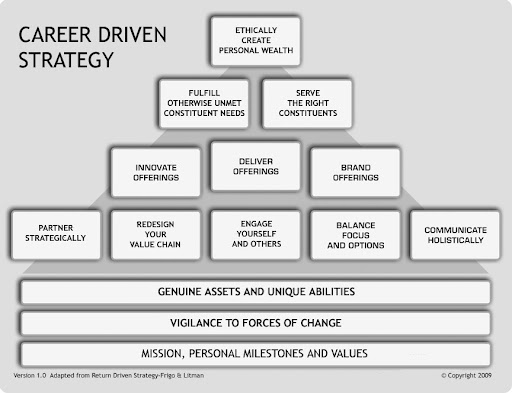Know more about this "expectations conundrum" in the business world…
Today, let’s delve deeper into the 3rd foundation of RDS. Read on to have a wider, deeper, and better perspective about this conundrum regarding companies’ performances and valuations. |
|
Know more about this "expectations conundrum" in the business world… FedEx Corporation (FDX), originally Federal Express Corporation, is an American multinational conglomerate holding company focused on transportation, e-commerce, and business services. The name “FedEx” is a syllabic abbreviation of the name of the company’s original air division, Federal Express, which was used from 1973 to 2000. FedEx today is best known for its air delivery service, which was one of the first major shipping companies to offer overnight delivery as a flagship service. Since then, FedEx also started FedEx Ground, FedEx Office (originally known as Kinko’s), FedEx Supply Chain, FedEx Freight, and various other services across multiple subsidiaries, often meant to respond to its main competitor, UPS. Today, FedEx assists in the transport of some U.S. Postal Service packages through its Air Cargo Network contract. The Expectations Conundrum
According to Professor Joel Litman and Dr. Mark L. Frigo in the book, “Driven,” in the popular press and in business schools, no greater misunderstanding has arisen than the belief that FedEx’s stock price from 2002 to 2006 was caused by great company performance. In fact, the firm’s earning power is average at best from 2005 to 2007, and well below corporate averages for the 20 years or more prior. Here’s the thing… The FDX stock price was driven by a management team that took a poor 3% business to an average 6% level. For Professor Litman and Dr. Frigo, that is the recipe for a great stock! However, despite accolades for being the most admired, well-run business, the firm simply has never posted financial returns to justify that belief. Many other competitors in the industry have achieved higher returns for long periods of time. What does this example tell you? With valuation levels based on expectations of performance and NOT posted performance, there are troubling issues for investors and other decision-makers. Take a look at what happened in 1998… When the stock market was booming into the tech bubble, a fundamentally based investor might have considered shorting a stock. After all, many stocks seemed to have risen straight upward for several straight years. The market had priced in exuberant expectations. However, if expectations had reached that high level, maybe they could still go to ridiculously exuberant levels before the bottom fell out, so to speak. According to Professor Litman and Dr. Frigo, the entire Internet bubble was a case study in this kind of market behavior. So, how should a board member align management’s interests with those of shareholders, when options and stock shares priced at such levels can only serve as reverse motivators? How can a company manager have the faith to know whether or not the right things are being done, when the stock begins to fall precipitously despite profitability levels that remain the envy of the entire market? What’s the best way forward in such situations? For Professor Litman and Dr. Frigo, the answer is simple: Go back to the truth of cash flows . According to them: “Many examples exist of companies that are commonly thought to be great companies simply because they are great stocks, and vice versa.” AMD and FDX stand out as two companies that continually receive high marks in the financial press such as “most admired” status. However, a simple look at the firms’ cash flows tell the tale: Great turnarounds, NOT necessarily great companies. The bottom line here? Stock price alone can NEVER reveal anything but changing expectations in a company’s performance levels. That’s why by itself, stock price change says nothing about the level of performance to managers and investors. Keep this important insight in mind! Also, if you’re looking to gain a better understanding of Return Driven Strategy and Career Driven Strategy, we highly recommend checking out “Driven” by Professor Litman and Dr. Frigo. Click here to get your copy and learn how this framework can help you in your business strategies and ultimately, in ethically maximizing wealth for your firm. Hope you found this week’s insights interesting and helpful.
Stay tuned for next Tuesday’s Return Driven Strategy! Salesforce is one of the most recognizable names in the Customer Relationship and Software as a Service spaces. Not only that, it’s also one of the most valuable companies in tech and enterprise software. Learn more about the importance of fulfilling unmet needs in next week’s article! |

Miles Everson
CEO of MBO Partners and former Global Advisory and Consulting CEO at PwC, Everson has worked with many of the world's largest and most prominent organizations, specializing in executive management. He helps companies balance growth, reduce risk, maximize return, and excel in strategic business priorities.
He is a sought-after public speaker and contributor and has been a case study for success from Harvard Business School.
Everson is a Certified Public Accountant, a member of the American Institute of Certified Public Accountants and Minnesota Society of Certified Public Accountants. He graduated from St. Cloud State University with a B.S. in Accounting.



